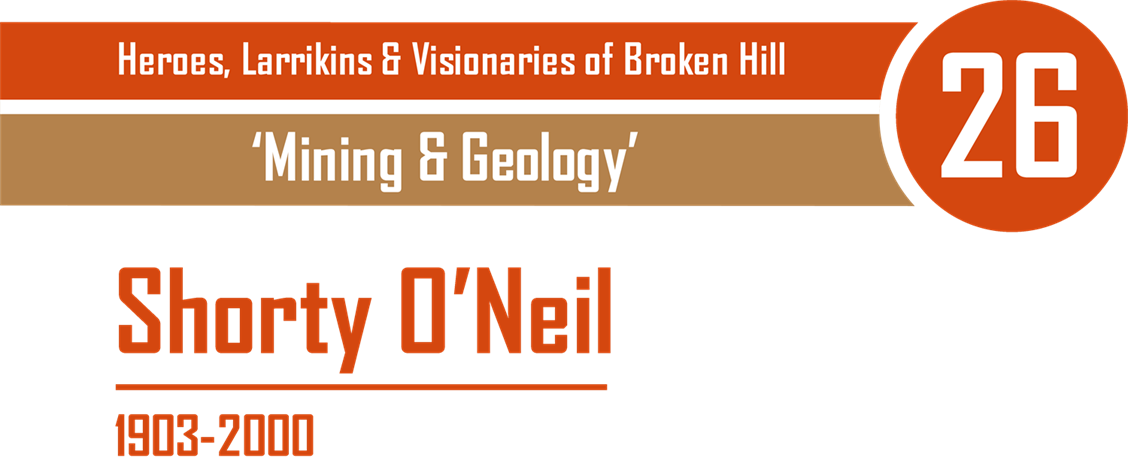Shorty O'Neil

William Sydney (Shorty) O’Neil was, in his time, the strongest voice of Australia’s most powerful union organisation, the Barrier Industrial Council (BIC). He was admired by some as a champion of the workers and disliked by others for being tough and chauvinistic; he was inarguably confrontational, and he took on the mining companies with the same ruthlessness they showed to their workers. ‘If you don’t kick you get kicked’ was his motto.
Shorty, barely over five feet tall as a grown man, was born in Broken Hill in 1903 into a family of unionists. His father, Mick O’Neil, a bootmaker and shearer before becoming a miner, joined the shearers and pastoralists strikes of the 1890s. Shorty’s brother Andy served seven years in jail for his part in setting alight the paddle-steamer Rodney that carried scab (non-union) labour during the 1890s’ strikes.
Mick O’Neil became an active member of the Amalgamated Miner’s Association (AMA) when he started working underground as a miner in Broken Hill, so it was natural for Shorty, at the age of 14, to go to work in the mines, starting above ground at the BHP ‘Big Mine’ and then becoming an underground ‘hard rock’ miner, first for BHP and then at the North Mine. This was to be his job for the next fifty years.
Two years after he started working in the mines, Shorty experienced the longest, harshest strike in Broken Hill’s history. The ‘Big Strike’ lasted for 18 months, between 1919-1920 with little gained, but by 1921 the unions in Broken Hill had won the world's first 35-hour week and first industrial diseases compensation scheme. The strike impacted hugely on the young Shorty O’Neil, who had become his father’s shoeshine boy at the Trades Hall. It was the beginning of his hardline position, as a young trade unionist, that neither strikes nor arbitration were the solution for the worker. It was kick or be kicked.
The Barrier Industrial Council was formed in 1923 and became an influential platform for the mining and town sector trade unions. Through the 1930s and 1940s, when Shorty O’Neil worked underground at the North Mine, he became a key figure and then president of the Communist-leaning Militant Minority Movement, an organisation that became so influential even the BIC could not afford to ignore their position on improved conditions for underground miners. Shorty eventually became the Movement’s committee president. At the end of World War II, he led a walk-out at the North Mine, a strike that attracted national attention and cemented his reputation as a worker’s champion.
Through the 1950s O’Neil became a trustee, then junior vice-president, and then senior vice-president of the BIC. In 1957 he was elected BIC president and maintained the most senior and powerful position in barrier unionism whilst still working as a miner.
In 1962, under O'Neil's presidency, the BIC bought the Barrier Daily Truth, making it compulsory for every local unionist to subscribe. Shorty O’Neil remained a working miner until 1965 and then took work in a local concrete plant until he retired from work and from the BIC. His son Bill took on the presidency in 1985.
Shorty O’Neil remained active in local unionism until his death in 2000.
Audio transcript available.
PICK UP YOUR FREE BROCHURE & MAP OF THIS TRAIL FROM THE VISITOR INFORMATION CENTRE